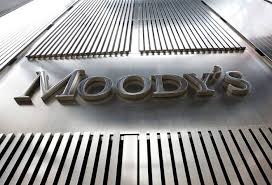 An income tax tribunal has barred auditors from issuing valuation certificates to the companies they are auditing. This is set to impact several tax disputes around valuations in companies including angel tax disputes involving start-ups.
An income tax tribunal has barred auditors from issuing valuation certificates to the companies they are auditing. This is set to impact several tax disputes around valuations in companies including angel tax disputes involving start-ups.
The Bangalore Income Tax Appellate Tribunal (ITAT) said that auditors of a company cannot double up as accountants especially in situations while dealing with “share valuation for the purpose of excess share-premium taxability.”
In several cases the income tax department has disputed valuations of companies around the time of investments.
The ITAT ruling came in a case where the tax department had challenged valuation of a company by its auditor.
In most cases, valuations of startups were challenged by the tax department, leading to “angel tax.” The angel tax controversy surrounds the valuations during various rounds of startup funding. In several cases, the revenues at startups kept reducing or remained stagnant, but their valuations increased. The taxman is questioning the premiums paid by the investors and wants to categorise them as income that would be taxable at 30%. In most cases, the investments made by angel investors, venture capital funds or any other investor have been challenged by the taxman.
Many accountants and valuers are already facing heat from the tax department. ET had, on December 25, reported that the tax department has started issuing show-cause notices to valuation experts, questioning the premiums several startups fetched during their investments rounds.
Valuation experts, however, say that they merely projected and calculated future growth, using the facts and figures provided by the startups. Many tax experts point out that the tax department’s approach to the fair value as a benchmark for calculating premiums may not be accurate in the context of startups.
Income tax officers claim that the scrutiny on startups is mainly due to concerns that black money may have changed hands.
ITAT Ruling
The Tribunal, while considering an appeal filed by the assessee-Company, held that the auditors of a company cannot double up as accountants especially in situations while dealing with “share valuation for the purpose of excess share-premium taxability.”
The Assessing Officer, while completing assessment against the assessee, had noted that the person who is said to have valued the share of the assessee company as on 15.11.2013 and 02.05.2014 respectively is none other than the person who has signed the Audit report under section 44AB of the Income Tax Act.
He further ignored the valuation report submitted by the assessee because the same is not as per Rule 11UA and therefore, determined the fair market value on the basis of NAV.
The Tribunal noted that the purposes of sub-rule (2) of rule 11UA, the auditor cannot be an accountant for the purposes of Rule 11UA (2).
Dismissing the appeal, the Tribunal held that “the AO has worked out the fair market value of assessee company at Rs. 714.38/- on the basis of NAV in the absence of any valuation report of any valuer who can be accepted as an Accountant as per Rule 11U(a) and taxed the excess amount of premium received by assessee over and above the permissible amount at Rs. 714.38/- per share in respect of 36957 shares and taxed the excess amount received of Rs. 1,32,29,088/- u/s. 56(2)(viib) of IT Act.
In the facts of the present case, I find no reason to interfere in the order of CIT(A) on this issue in this year also.” Before concluding, the Tribunal also held that “when an auditor cannot be accepted as an accountant for the purposes of Rule 11UA (2) read with Rule 11U(a), there is no option available to the AO but to accept the earlier report in A. Y. 2014 – 15 valuing the shares at Rs.100/- per share instead of Rs. 400/- per share as per a certificate by the auditor who cannot be accepted as an accountant for the purposes of Rule 11UA (2) read with Rule 11U(a), and adopt NAV method in A. Y. 2015 – 16.
This is very important to note that when a Chartered Accountant who can be accepted as an Accountant as per Rule 11UA (2) read with Rule 11U(a) certifies the value, the value certified as on 02.02.2012 is Rs. 100/- per share and when the auditor certifies such value on 15.11.2013 (just after 21 months approx), the value certified rises four times to Rs. 400/- per share.
These facts also suggest that such restriction as per Rule 11U(a) on the auditor’s acceptance as Accountant for the purposes of Rule 11UA (2) is well founded.”
Earlier, there were reports that the tax department has started issuing show-cause notices to valuation experts, questioning the premiums several startups fetched during their investments rounds.
 An income tax tribunal has barred auditors from issuing valuation certificates to the companies they are auditing. This is set to impact several tax disputes around valuations in companies including angel tax disputes involving start-ups.
An income tax tribunal has barred auditors from issuing valuation certificates to the companies they are auditing. This is set to impact several tax disputes around valuations in companies including angel tax disputes involving start-ups.




